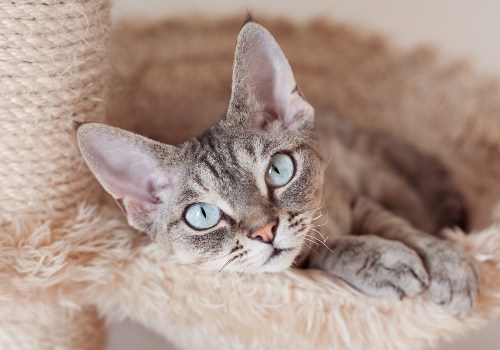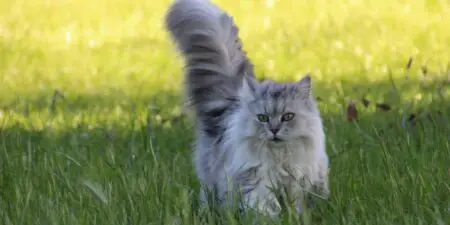Are you contemplating taking a plunge into the delightful yet unpredictable world of feline companionship?
Before you succumb to the enchanting allure of whiskers and a swaying tail, you must understand one crucial thing.
This isn’t just about choosing the fluffiest kitten, the most endearing stray, or even the cat with the most captivating eyes.
It goes way beyond that.
Cats, much like people, have distinct personalities, diverse needs, and specific quirks.
And this is the one thing you should know before adopting a cat: you are not just adopting a pet; you are welcoming a unique individual into your life.
The Basics
Let’s start with the basics: cats are not merely smaller, fluffier dogs.
They’re a different species with their own unique behaviors and needs.
To get a cat is to step into a world of peculiar nighttime activity, surprise pounces, and a particular fondness for cardboard boxes.
It’s a world where the phrase “If I fits, I sits” becomes a daily mantra.
Each cat has its own unique set of characteristics.
Some cats are talkative, filling your home with a symphony of meows, purrs, and trills.
Others might be more reserved, preferring quiet companionship over conversation.
Some cats may love a good play session, chasing toys around the house with wild abandon.
Others might prefer a more sedentary lifestyle, curled up on a warm spot, such as your laptop keyboard, especially when you need it the most.
So, What Does This Mean for the Hopeful Cat Parent?

It means that you need to be prepared for anything.
It means that you need to be flexible and willing to adapt.
Your home will not just be your home anymore; it will be a shared space. Your schedule won’t just be your schedule; it will be molded around feeding times, playtimes, and – most importantly – cuddle times.
You see, cats are not just pets.
They’re not merely creatures to take care of.
They’re companions, friends, and confidantes.
They’re small, four-legged individuals with their own whims, desires, and dislikes.
Adopting a cat means you’re signing up for the whole package.
It’s a relationship that may involve more cat hair than you might initially anticipate.
Just imagine the potential scenarios.
Picture yourself reading a book to find your cat determinedly nudging it aside to claim your lap.
Envision waking up to find a dead mouse proudly presented at your bedroom door, a gift from your feline friend who believes that sharing is caring.
Imagine an intense stare-off with your cat when you dare to occupy THEIR spot on the sofa.
If you can laugh at these scenarios, then you’re ready. You’re ready to embrace the unpredictable, enchanting world of cat companionship.
To sum it all up, the one thing you should know before adopting a cat is this: adopting a cat means welcoming a new individual personality into your life.
It means giving them space in your home, in your schedule, and in your heart. It means embracing the unexpected and learning to find joy in the peculiarities of feline behavior.
Summary

So, are you ready to embark on this journey of cat adoption?
Are you ready to open your home and heart to a new, purring companion?
If yes, then go ahead. Your future feline friend awaits. But always remember, adopting a cat is not just about providing a home, it’s about welcoming a new family member.
And let’s be honest, life is much more interesting with a bit of feline flair, isn’t it?
Everything You Need to Know Before Adopting a Cat (Video)
10 Related Questions About Cat Adoption
1. How can you determine the personality of a cat before adoption?
Determining a cat’s personality before adoption can be done by spending time observing and interacting with the cat. Take note of the cat’s energy level, playfulness, and sociability with people and other animals. Additionally, ask the shelter staff or foster caregivers about the cat’s history, behavior, and temperament. This information will help you decide whether the cat is a good fit for your lifestyle and home.
2. What are the most important factors to consider when adopting a cat?
When choosing a cat to adopt, consider factors such as the cat’s age, personality, energy level, and health. Additionally, take into account your living situation, schedule, and available resources. Find a cat whose needs align with your lifestyle and capabilities, as this will increase the likelihood of successful adoption and a happy, long-lasting relationship.
3. How can you help your cat adjust to its new home and environment?
To help your cat adjust to its new home and environment, provide a quiet and safe space where the cat can retreat and relax. Gradually introduce the cat to different areas of the home and to household members. Maintain a consistent routine for feeding, playtime, and cuddling. Be patient, as it may take a cat several weeks to feel fully comfortable in a new environment.
4. What common behavioral issues may cat owners face, and how can they be addressed?
Common behavioral issues in cats include inappropriate elimination, scratching furniture, aggression, and excessive vocalization. Address these issues by providing appropriate outlets for natural behaviors, such as scratching posts and interactive toys. Consult a veterinarian or a cat behaviorist for guidance on managing complex or persistent behavior problems.
5. Are particular cat breeds more suitable for specific lifestyles or living situations?
Yes, certain cat breeds are more suitable for specific lifestyles or living situations. For example, some breeds, like the Siamese, are known for their high energy levels and vocal nature, making them a better fit for active households where someone is frequently home. Conversely, breeds like the British Shorthair tend to be more laid-back and independent, making them a good choice for busy professionals or apartment living.
6. How can you accommodate a cat’s natural instincts and needs within your home?
To accommodate a cat’s natural instincts and needs in your home, provide various outlets for stimulation and exercise. Offer scratching posts and interactive toys that cater to their hunting instincts, and create vertical spaces using shelves or cat trees to give them room to climb and explore. Ensure ample cozy spots for napping and window perches for bird-watching to satisfy their curiosity.
7. What are the essential items and supplies needed for a new cat owner?
New cat owners should have the following essential items: a litter box and litter, food and water dishes, balanced and nutritious cat food, a comfortable bed, various toys for play and stimulation, a scratching post or pad, grooming supplies (brush, nail clippers, etc.), a carrier for transport, and a collar with identification tags.
8. How can cat owners establish boundaries and train their new feline friends?
Establishing boundaries and training your cat can be accomplished through consistency and gentle, positive reinforcement. Reward desirable behaviors with treats, praise, or playtime, and redirect unwanted behaviors to appropriate outlets. For example, if your cat scratches furniture, provide a scratching post and reward them when they use it. Patience and repetition are key to helping your cat learn boundaries and desired behaviors.
9. What are the signs of a happy and healthy cat, and how can you ensure their well-being?
A happy and healthy cat will have a good appetite, maintain a healthy weight, have clear eyes and a clean coat, and display a curious and playful demeanor. Ensure your cat’s well-being by providing a balanced diet, regular veterinary check-ups, a clean and safe living environment, and daily interaction and stimulation through play and affection.
10. How can you create a strong and lasting bond with your adopted cat?
Creating a strong and lasting bond with your adopted cat involves spending quality time together, engaging in interactive play, and providing gentle and consistent care. Get to know your cat’s unique personality, preferences, and communication style. Be patient, as trust and a strong bond may take time to develop, especially with rescued or previously abandoned cats.
"In ancient times cats were worshipped as gods; they have not forgotten this."
-- Terry Pratchett





